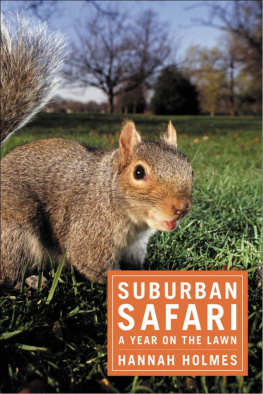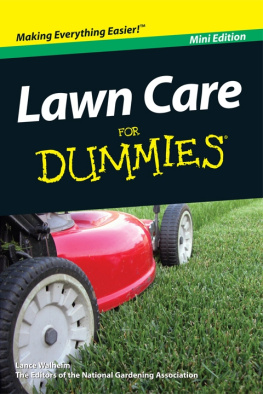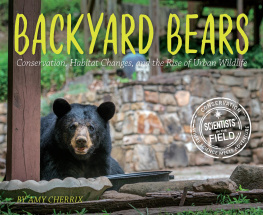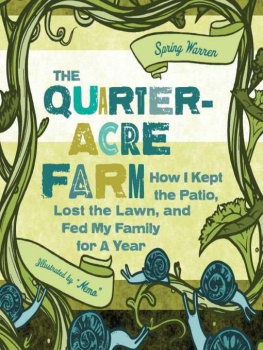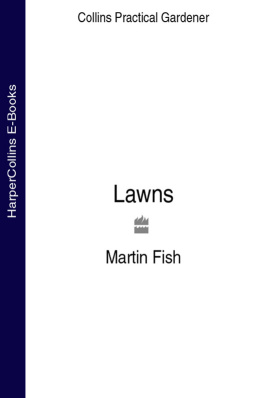Praise forSuburban Safari
"Holmes has that rare ability to tackle the most boring-sounding subjects and not only make them endlessly fascinating to read about, but also funny as hell... Reading Holmes' account is a bit like watching an awesome National Geographic documentary if it were hosted by a nature-loving version of Sarah Vowell." Debbie Stoller,Bustmagazine
"Captivating... Holmes... deserves her own TV show. It could be called Suburban Safari, just like her newly published book, and could feature footage of Holmes performing all the exciting activities she recounts in print: chasing ants, scooping up slugs, setting traps with peanut butter and spying on spiders... A frolicking, rollicking romp of a book."Atlanta Journal-Constitution
"In her own little kingdom, Holmes witnesses dramas one would sooner associate with the wo oiliest jungle or savannah, from chemical warfare between rival plants to the bloody mating duels of male squirrels."Forbes
"Holmes reveals the intriguing, unnoticed dramas that unfold daily on suburban lawns. The book features birds, small animals and plant life immersed in a real-life plot that ranges from suspenseful to surprising, from sad to joyful... A fascinating journey."Denver Post
"Entertaining and effortlessly compelling... What drives Holmes is not just concern for the natural environment but a ravenous curiosity about every aspect of the world around her, from the sex lives of dragonflies and squirrels, to the murderous tendencies of the English sparrows that have colonized her land... An intimate, wry, and often challenging look at a world most of us never bother to notice."Amazon.com
"Everything about Suburban Safari is refreshing: its exploration of the nature just outside our back doors; Holmes's deft excursions into climatology, geology, and other -ologies; and a whole pile of eyebrow-raising facts... You'll finish the book knowing more about your immediate surroundings than you ever thought you wanted toand it'll be the most entertaining education you ever get."Portland Phoenix
"Holmes manages to find signs of hope and humor amid the spread of civilization, and she reports animal activities in her yard with the fervor of Wild Kingdom's Marlin Perkins and the laconic glee of Garrison Keillor... By the end of her year, Holmes has gently taught us that the American lawn is a pesticide-laden patchwork that's increasing by a million acres every year, that heating a house can produce five tons of pollutants annually and that stewardship of our own backyards is our responsibility."Publishers Weekly
"With infectious enthusiasm and faith in nature's doggedness in the face of encroaching humanity, science writer Holmes follows the four seasons as they play out in her own micro-habitat... A cracking good reminder that an appreciation of the wonders of nature need not be reserved for special occasions."Kirkus Reviews
"This is not just a very funny and very informative piece of writing, and not just a squirrel's horde of interesting information about the place you live. It's also a very important booka graceful and forceful reminder that the natural world is everywhere all around us, to be savored and to be protected."Bill McKibben, authorofEnoughandThe End of Nature
"Look not to the faraway and exotic locale for the species-destroying and biologically undiversified mess we've gotten ourselves into. Look in your own backyardor Hannah Holmes s backyard, where, with reverent wonder, she looks hard at her own soils, slugs, and sowbugs to show us the grand implications of the tiniest lawn-mowing decisions. Suburban Safari proves once and for all that there is life in the suburbs and that it's worth thinking hard about how to handle it."Robert Sullivan, bestselling author ofRats
SUBURBAN SAFARI
A YEAR ON THE LAWN
HANNAH HOLMES

BLOOMSBURY
Copyright 2005 by Hannah Holmes
All rights reserved. No part of this book may be used or reproduced in any manner whatsoever without written permission from the publisher except in the case of brief quotations embodied in critical articles or reviews. For information address Bloomsbury Publishing, 175 Fifth Avenue, New York, NY 10010.
Published by Bloomsbury Publishing, New York and London
Distributed to the trade by Holtzbrinck Publishers
All papers used by Bloomsbury Publishing are natural, recyclable products made from wood grown in well-managed forests. The manufacturing processes conform to the environmental regulations of the country of origin.
The Library of Congress has cataloged the hardcover edition as follows:
Holmes, Hannah, 1963
Suburban safari : a year on the lawn / Hannah Holmes.1st U.S. ed.
p. cm.
Includes bibliographical references.
1. Urban animalsMaine. 2. Household animalsMaine. 3. Urban ecologyMaine.
I. Title.
QL181.H65 2005
577.5'6'09741dc22
2004017804
First published in the United States by Bloomsbury Publishing in 2005 This paperback edition published in 2006
eISBN: 978-1-59691-811-5
3 5 7 9 10 8 6 4
Typeset by Palimpsest Book Production Limited, Polmont, Stirlingshire, Scotland Printed in the United States of America by Quebecor World Fairfield
In memory of Cheeky
CONTENTS
I GREW UP in a clan that disdained suburbs and cities. We were country folk. Our kind milked our own cow, boiled maple sap from our own trees, and raised pet robins and seagulls from eggs. We pitied city dwellers, who in the summer occasionally pulled into our driveway and pleaded with us to show their children how the carrots grew right out of the dirt. We were immodest about our ability to take care of ourselves in Nature.
But for me, going to school smelling of cow dung wore thin. I rebelled, running headlong for the city. For many years, I grew not one mouthful of food, nor even a rose. In the park, I did n't know one tree from the next. I forgot the names of the birds. And one day, reading in my office at an environmental magazine, I stumbled on a quiz. "Name five resident and five migratory birds in your area," the quiz prodded. "What direction do your winter storms come from? When is the next full moon? Exactly how far have you fallen, young lady?"
I had fallen far, far. And my ignorance of the animals and plants who share the planet has been on my conscience ever since.
But for me, the answer was not to get back to the land. There is no land that I could justifiably get back to. Every new house-lot displaces a family of woodpeckers, or a raccoon, or a tree that has invested two centuries in its climb toward sunlight. No, I had already concluded that the salvation of what little Nature is left on earth will depend on people staying in the cities and towns. (And in the interest of full disclosure, I could never go back to life removed from art galleries and top-shelf baking chocolate, anyway.)
As it happened, I recently settled on two tenths of an acre near the ocean in South Portland, Maine. Having spent a number of years writing about the natural wonders in such exotic locales as Madagascar and Mongolia, I thought it only fair to approach my new backyard with the same sense of discovery. Just because an organism is local does n't mean it's simple. My oak tree, for instance, has the ability to adjust its acorn production to manipulate the squirrel population. And that an organism is common does n't mean that it's unremarkable. The ubiquitous groundhog can spend nine months of the year in hibernation, without eating or drinking.

